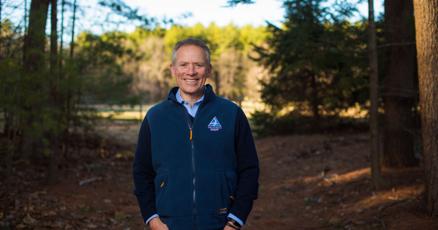Green Guardian: Inside the Vision of Mass Audubon's Leader David O'Neill

In a candid conversation about environmental stewardship, David O'Neill, the passionate CEO of Mass Audubon, offers a compelling vision for conservation in Massachusetts. With unwavering commitment, he delves into the critical challenges facing our natural landscapes and the urgent need for bold environmental action.
O'Neill is particularly vocal about the potential threats to federal environmental funding, warning that the current political climate could significantly impact conservation efforts. His message is clear: Massachusetts must take a proactive stance in protecting its rich ecological heritage.
At the heart of his advocacy is a passionate call for an ambitious environmental bond bill. "We can't afford to think small," O'Neill emphasizes. He believes that the state has a unique opportunity to set a national example by making substantial investments in land preservation, wildlife protection, and climate resilience.
Mass Audubon, under O'Neill's leadership, continues to be at the forefront of conservation efforts, working tirelessly to protect Massachusetts' diverse ecosystems. From coastal habitats to inland forests, the organization is committed to preserving the natural beauty and biodiversity that makes the state so special.
As funding challenges loom and environmental pressures mount, O'Neill remains optimistic. His vision extends beyond immediate conservation efforts, focusing on creating a sustainable future that balances human needs with the protection of our natural world.
The message is unmistakable: Massachusetts stands at a critical juncture, and the choices made today will shape the environmental landscape for generations to come.
